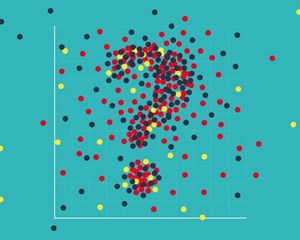Nowhere is this more vividly manifest than with immigration. The thinktank British Future has studied how best to win arguments in favour of immigration and multiculturalism. One of its main findings is that people often respond warmly to qualitative evidence, such as the stories of individual migrants and photographs of diverse communities. But statistics – especially regarding alleged benefits of migration to Britain's economy – elicit quite the opposite reaction. People assume that the numbers are manipulated and dislike the elitism of resorting to quantitative evidence. Presented with official estimates of how many immigrants are in the country illegally, a common response is to scoff. Far from increasing support for immigration, British Future found, pointing to its positive effect on GDP can actually make people more hostile to it. GDP itself has come to seem like a Trojan horse for an elitist liberal agenda. Sensing this, politicians have now largely abandoned discussing immigration in economic terms.
這一點在移民問題上表現得最為明顯。智庫“英國未來”研究了如何最好地為支持移民和多元文化主義贏得爭論。它的主要發現之一是,人們通常對定性證據反應熱烈,比如移民個體的故事和不同社區的照片。但統計數據——尤其是有關所謂移民給英國經濟帶來好處的數據——卻引發了截然相反的反應。人們認為數字是被操縱的,不喜歡訴諸定量證據的精英主義。當被問及美國有多少非法移民時,一種普遍的反應是嘲笑。“英國未來”發現,指出移民對GDP的積極影響非但不會增加人們對移民的支持,反而會讓人們對移民更加敵視。GDP本身似乎成了精英自由主義議程的特洛伊木馬。意識到這一點,政客們現在基本上已經放棄了用經濟術語來討論移民問題。

All of this presents a serious challenge for liberal democracy. Put bluntly, the British government – its officials, experts, advisers and many of its politicians – does believe that immigration is on balance good for the economy. The British government did believe that Brexit was the wrong choice. The problem is that the government is now engaged in self-censorship, for fear of provoking people further.
所有這些都對自由民主提出了嚴峻的挑戰。坦率地說,英國政府——包括政府官員、專家、顧問和許多政界人士——確實認為移民總的來說對經濟有利。英國政府確實認為脫歐是一個錯誤的選擇。問題在于,政府現在正在進行自我審查,以免進一步激怒人們。
This is an unwelcome dilemma. Either the state continues to make claims that it believes to be valid and is accused by sceptics of propaganda, or else, politicians and officials are confined to saying what feels plausible and intuitively true, but may ultimately be inaccurate. Either way, politics becomes mired in accusations of lies and cover-ups.
這是一個不受歡迎的兩難境地。政府要么繼續發表它認為有效的言論,并被懷疑論者指責為宣傳,要么,政客和官員只能說一些看似可信、直觀上真實的東西,但最終可能是不準確的。不管怎樣,政治會陷入謊言和掩蓋的指控中。












